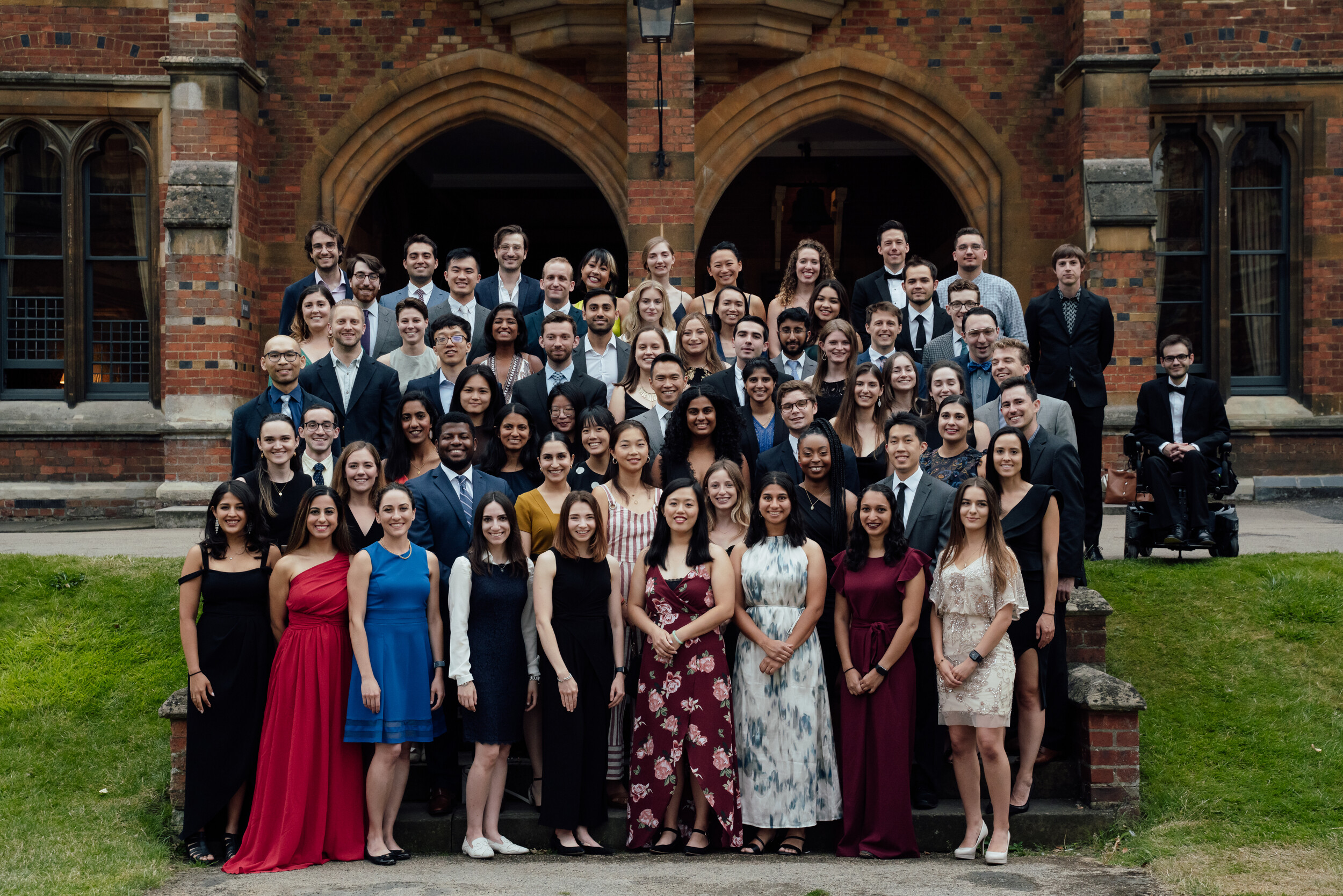The Workshop prioritizes rigorous empirical research on the frontiers of biomedical science and medicine. The aim is for Scholars to have an opportunity to share their work through elevator pitches, poster sessions, and oral presentations which concurrently stress the importance of public speaking, networking, and preparing data for a diverse audience. Alongside Scholars’ research talks, keynote speakers and panelists were invited to prepare presentations keeping on the theme of “Global Team Science: Bridging Borders from Bench to Bedside.”
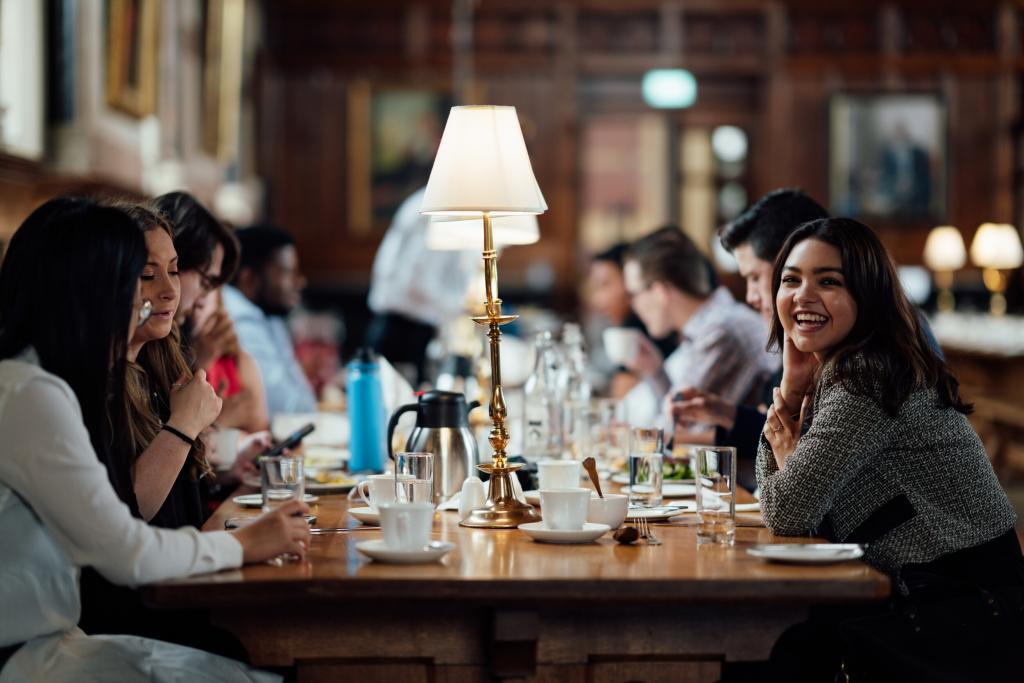
On Day 2 of the NIH Global Doctoral Partnerships Workshop, the morning discussion touched upon neuroscience, cancer research, and cell and molecular biology through oral presentations prepared by the Class of 2019. Following these talks, Dr. Jess Wade, an Imperial College Research Fellow investigating spin selective charge transport through chiral systems in the Department of Materials, was invited to give the Science Communication Address. Science Communication is necessary to make scientific research accessible to non-specialist audiences and to build an ecosystem of response to global, societal needs. This is exactly what Dr. Wade does. She tapped into the needs of society – the lack of visibility of women and underrepresented minorities (URM) in STEM – and challenged herself to write one Wikipedia article a day to combat this problem. Wikipedia receives 32 million page views daily and less than 20% of the English-language biographies on Wikipedia are about women, with even fewer about women in STEM. By contributing female and URM profiles, Dr. Wade was determined to fight the negatively impacted narrative of women and URM that diminishes the ability of people like them to see themselves as scientists, engineers, technologists, and mathematicians. This work encourages females, children from lower socioeconomic backgrounds, and people of color to see past social stereotypes and provide role models in STEM. Dr. Wade is committed to improving diversity in science, both online and offline, and has tremendous momentum to ensure representation and equity in retaining, promoting, and honoring women and URM in STEM. During her “Science and Storytelling” presentation, Dr. Wade discussed the platforms available to share science and encouraged the audience to investigate classroom visits, hands-on workshops, offline/online talks, social media, online content, books, TV, podcasts, and radio to bring research beyond the bench. This session showcased how these varied platforms incorporate public engagement in knowledge exchange, teaching, and social responsibility of doctoral students and researchers.
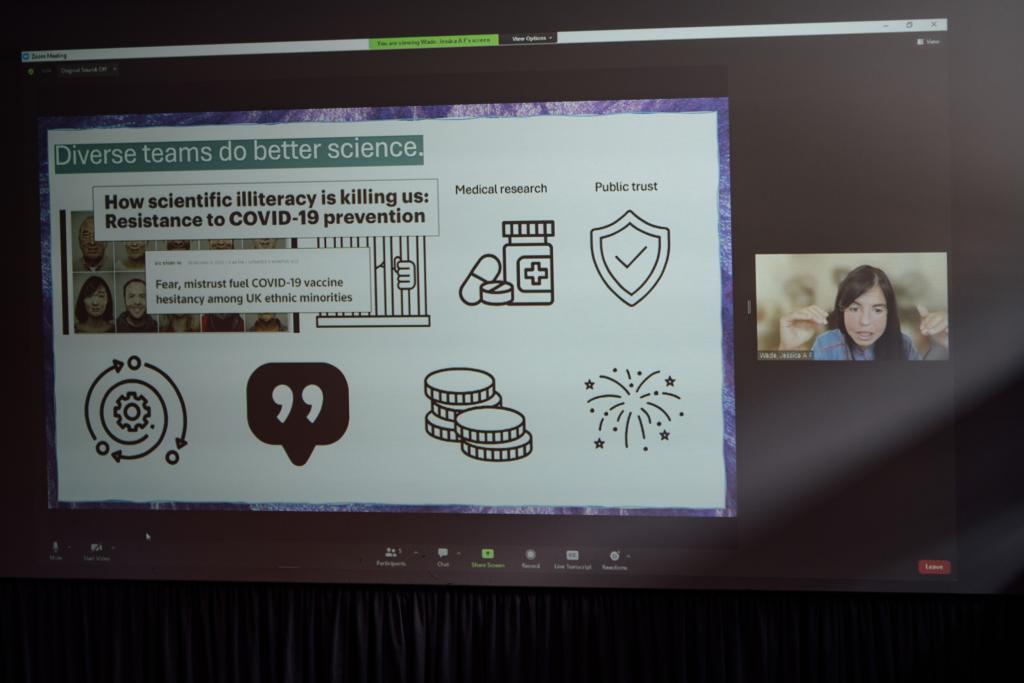
Prior to the Alumni Panel, Dr. Paul Tesar, a Professor and Director of the Pluripotent Stem Cell Facility at Case Western Reserve School of Medicine, was invited as the International Biomedical Research Alliance’s 2021 Distinguished Alumni Award recipient to give the introductory address. Scholars were eager to hear insights as doctoral students to succeed both in the NIH OxCam Program and in life afterward. Dr. Tesar’s talk “19 years after starting the NIH OxCam Program” highlighted how his time in the NIH OxCam Program led to the science that his lab is doing today. He shared his experiences founding a biotech company and provided wisdom and advice for the Scholars as they embark on the journey of becoming the next generation of leaders in biomedical science. The Alumni Panel invited Dr. Sabrina Heman-Ackah, Neurosurgery Resident at Penn Medicine, Dr. Megan Dennis, Assistant Professor at UC Davis, Dr. Andrew Ishizuka, SVP for Translational Research at Vaccitech, Dr. Matt Maciejewski, VP of Data Science at Korro Bio, Inc., and Dr. Jason Mellad, CEO/Co-founder of Start Codon to lead a question-and-answer session with the audience. The Workshop Planning Committee prepared questions based on Scholar feedback, while also encouraging Workshop attendees to ask questions about career paths, life choices, and experiences in medicine, research, biotech, and entrepreneurship.
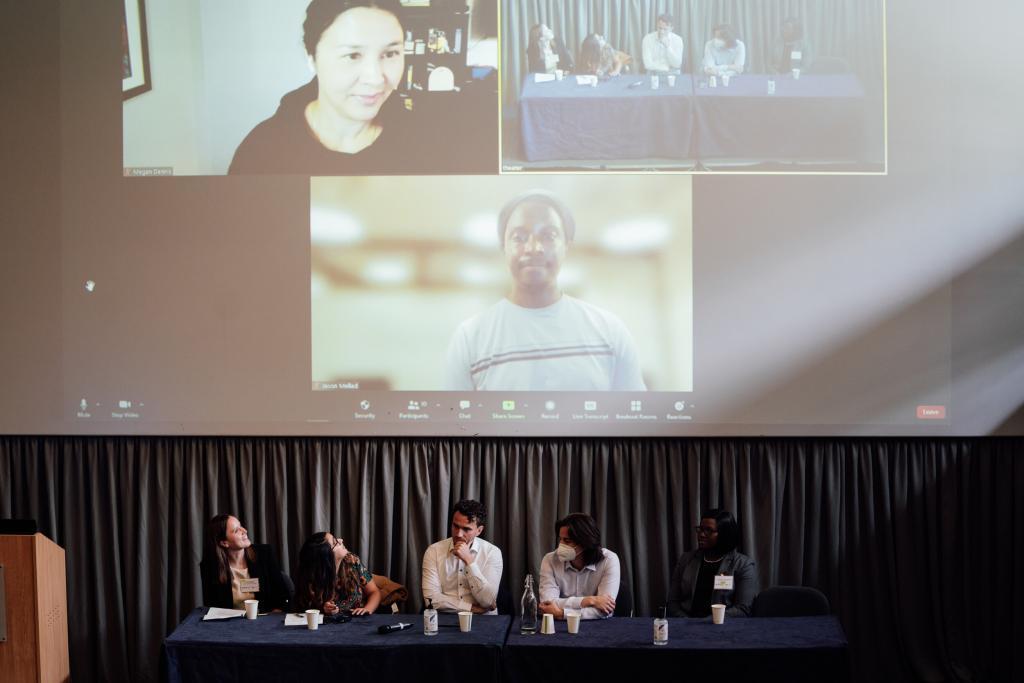
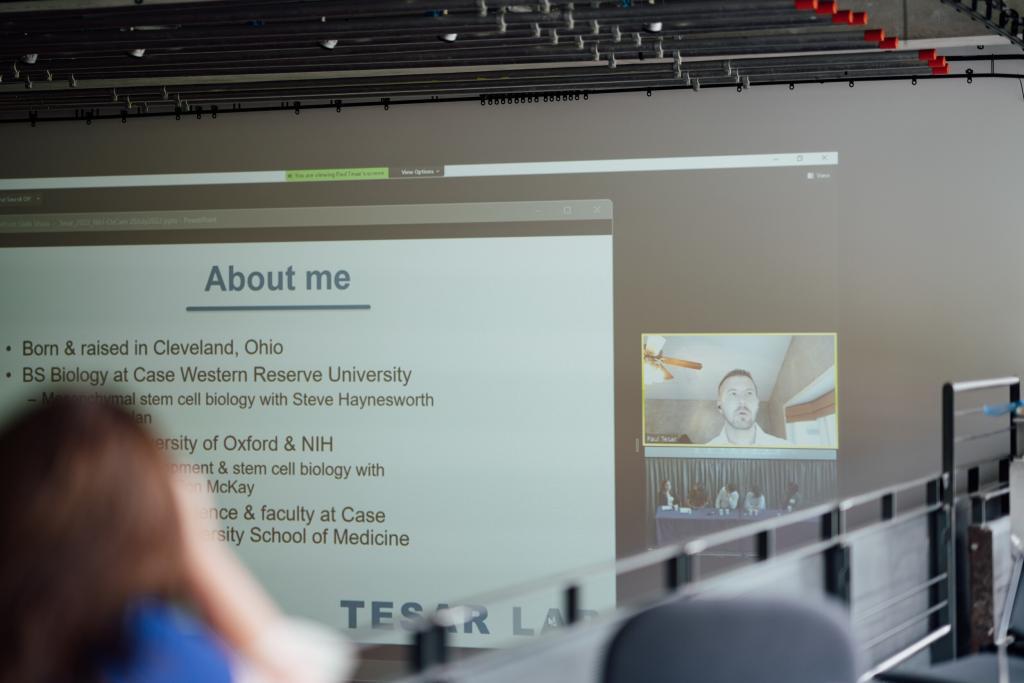
Workshop Planning Committee co-chair Alex Waldman moderated the final discussion, the Reflections Panel with the NIH OxCam Class of 2018 panelists, John Shannon, Emily Kolyvas, Madeline Epping, and Taylor Farley. Panelists were asked to share their experiences, impart wisdom, and provide mentorship to the new Scholars. With a reputation of being a very honest and open look in the rearview mirror, both the Alumni and Reflections panels draw some of the most interesting questions from current Scholars and this year was no exception.
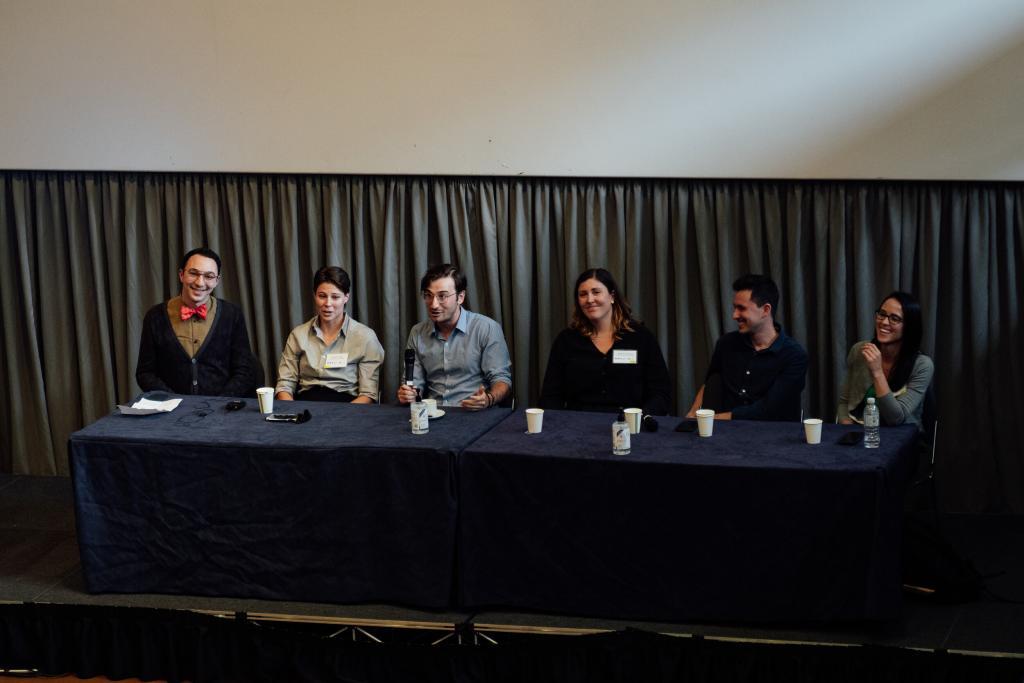
Following the Panel Discussions, the Champagne Reception in the Liddon Quad encouraged Scholars to assemble for their Class photos, and for the traditional photograph of all Workshop attendees on the grand and sprawling Keble lawn. Scholars, mentors, leadership, as well as Alliance Board Directors, were invited to attend the Gala Reception. Dr. Michael Dustin, the Oxford Director of the NIH OxCam Program, opened the elegant dinner reception with a warm welcome to attendees and invited Alliance Board Director Dr. Kathryn Zoon to give the Welcome Address. Following Dr. Zoon’s speech, Workshop Planning Committee co-chairs Kritika Singh and Alex Waldman moderated the much-anticipated annual science recognition Awards Ceremony. Details on the winners can be found in separate articles on the Alliance website.
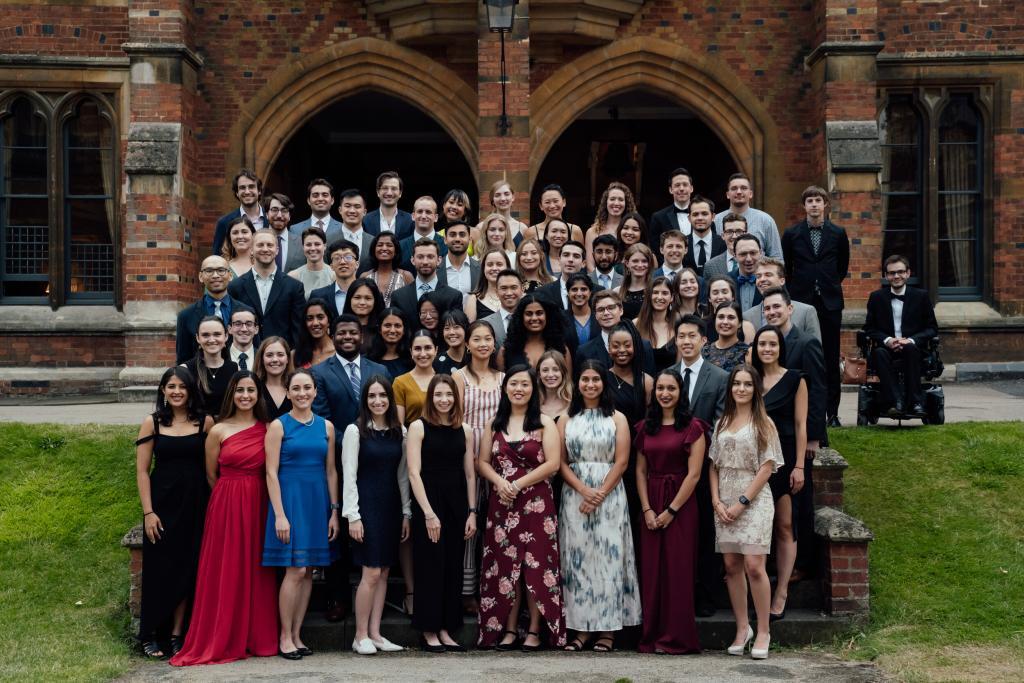
Congratulations to Scholars Emily Beltran, Jacob Gordon, and Mario Shammas for being named the first, second, and third place winners of the 2022 Photo Contest Winners for their “My Cool Science” submissions.

The Board of Directors of the International Biomedical Alliance would like to acknowledge the following individuals and organizations whose steadfast support makes a meaningful difference for the next generation of scientists: Arsenal Capital Partners, BioHealth Innovation, Bluestreet Productions, Cleveland Foundation, Emergent BioSolutions, the Foundation for Advanced Education in the Sciences, Institute for the Future of Medical Education, Korro Bio, Lasker Foundation, MacroGenics, Michael Lenardo, M.D., National Institutes of Health, London Foundation, Regeneron Pharmaceuticals, Richard Siegel, M.D. and Vera Siegel, University of Cambridge, University of Oxford and WCG. They would also like to extend their gratitude to the NIH Oxford-Cambridge Scholars Program Leadership Team and Workshop Planning Committee Members, Alex Waldman (Committee Co-Chair), Kritika Singh (Committee Co-Chair), Emily Beltran, Cristie Contreras, Kelsey Lowman, Jocelyne Rivera, Ray Smith, Stephanie Williams, and Mathieu Perez for their hard work and determination that made the 2022 Global Doctoral Partnerships Research Workshop a great success.

